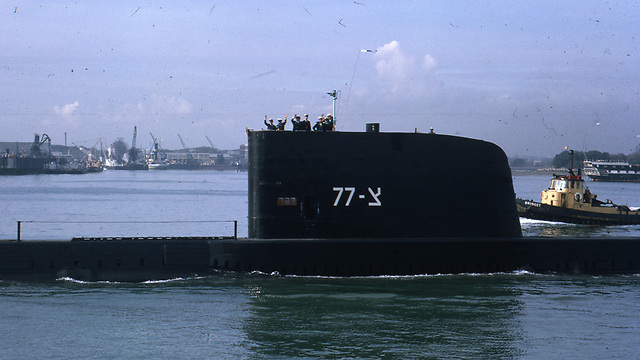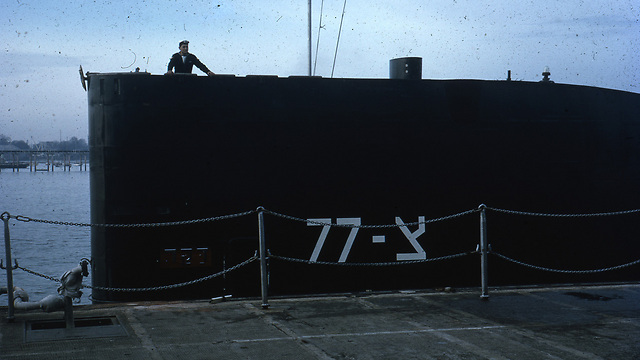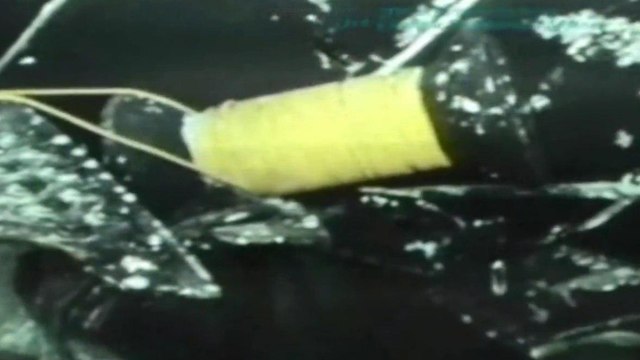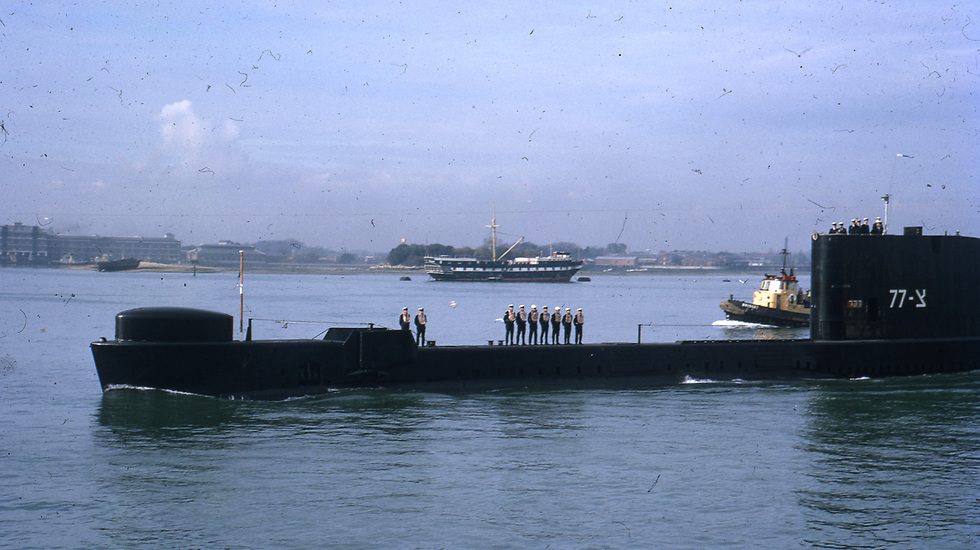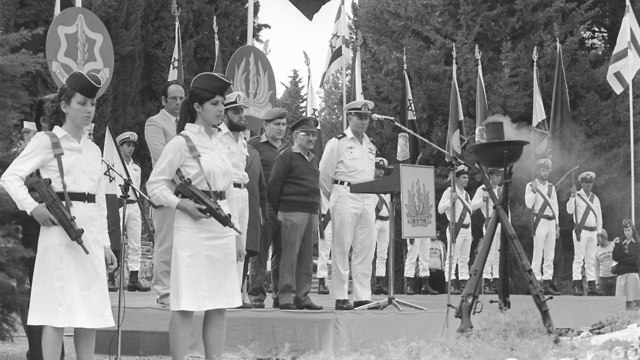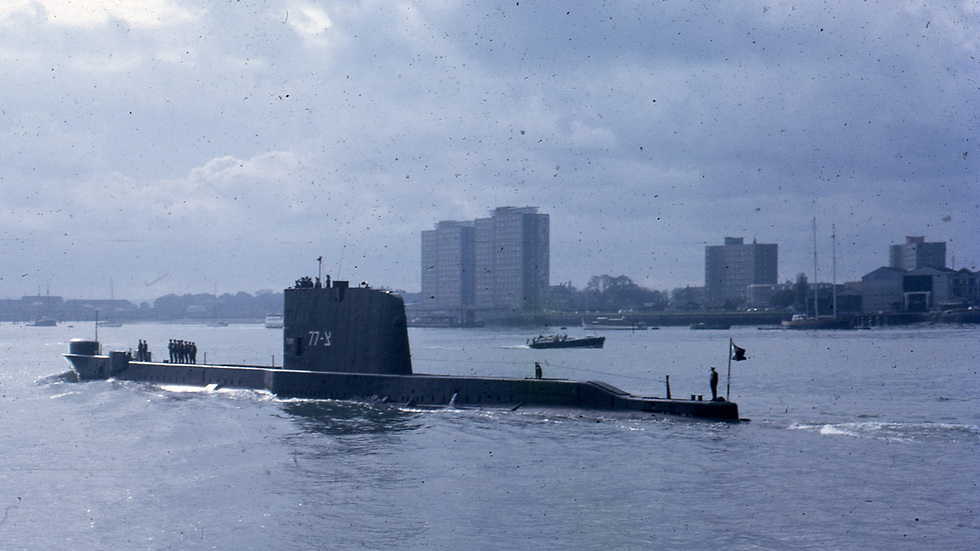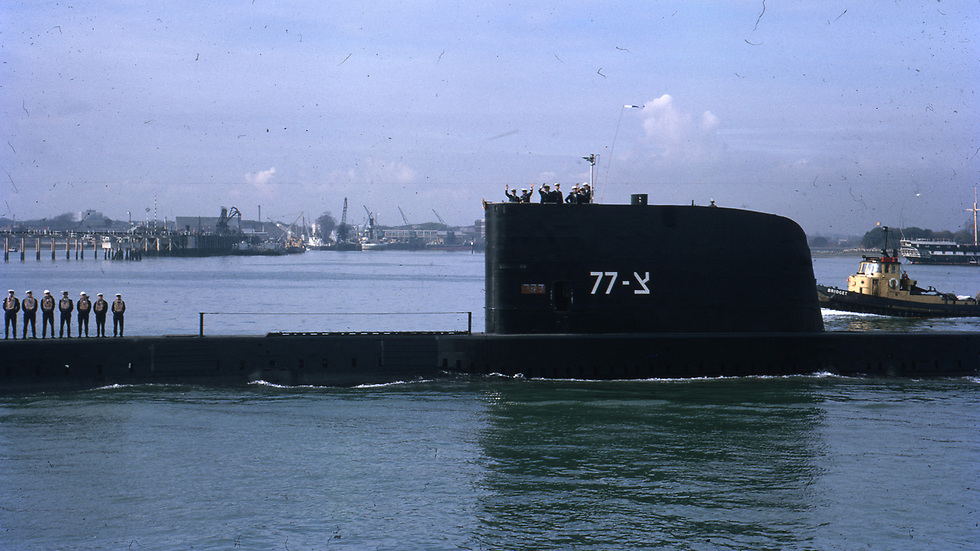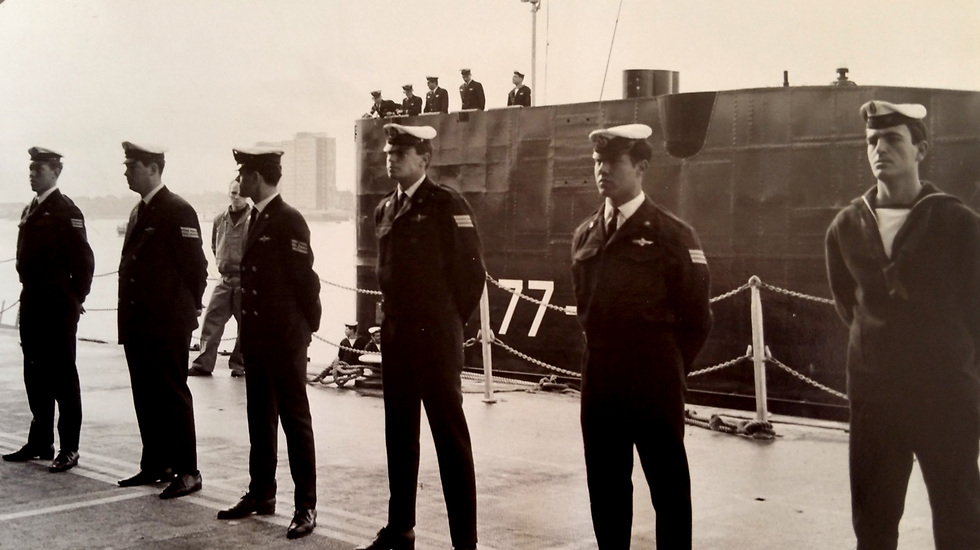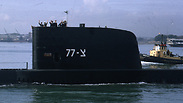

Footage, recordings surrounding INS Dakar's sinking released
Israeli Navy's Dakar submarine mysteriously sank 50 years ago with 69 crewmen aboard and was found 31 years ago; the tragedy remained an unsolved enigma for many years; footage of its remains being removed from the sea's floor revealed for first time.
The INS Dakar submarine mysteriously sank in 1968 on its way from Britain to Israel with 69 crewmen onboard. It took some 31 years to finds its remains in the sea's depths.
The unique footage revealed Monday showed the submarine's remains at the bottom of the sea and the Israeli and American supervisors watching the removal of the wreckage from the sea.
Former Navy commander Maj.-Gen. (res.) Alex Tal—under whose command the Dakar was found—told Ynet that, "A week before the video (documenting the removal of the INS Dakar submarine from the depths—ed) was taken, I was at the search site to watch the Americans working and handling the search gear."
"As I was leaving home on Friday my phone rang. Yechiel Ga'ash, who was the Israeli Navy's representative on the search site, called me. I thought he just wanted to wish me a quiet Shabbat," Tal said.
"When I heard him I immediately went to the side of the road and stopped the car. My wife asked me what happened and I replied with a shiver, 'The INS Dakar has been found.' I'll never forget the shiver I felt," he added.
Then defense minister Moshe Dayan was also recorded talking at Haifa's naval base several weeks after the submarine disappeared. Dayan could be heard explaining the significance of determining the submarine missing rather than gone.
"The Dakar is a mystery to us, one we know nothing about except that at a certain moment our connection with it broke," Dayan explained.
"We don't know and are not here to determine INS Dakar's crewmen are gone. We said they are missing," he went on to say.
"It is possible that after a fashion something we can't now expect will be revealed. Or a miracle will occur and someone is found alive somewhere, and can provide an explanation to this mystery," he continued.
An additional document revealed Monday is a command issued six weeks after the submarine disappeared by the Navy's seventh commander, Maj.-Gen. Shlomo Erell.
"The INS Dakar and its crew were in great shape. We have the utmost confidence in the experience, resourcefulness, professional knowledge and courage of the submarine's commander and crew and have no doubt that they couldn't prevent what happened," the command said.
Maj.-Gen. Erell underlined that the navy took upon itself a mission essential to Israel's security.
"We face our enemies and the sea—our only open border—and the sea claims and takes its victims. Despite the grave tragedy, you have shown stamina, maturity and camaraderie," he said proudly.
Erell concluded the command by saying, "The memory of the fallen Navy sailors will never leave us and will serve to guide us as we look ahead, united by the great mission of assuring Israel's sovereignty in spite of heavy costs and sacrifices."
Finding the missing submarine is an event the Navy's veterans still remember. Dakar crewman Carmel Avraham was taken off of the vessel several days before it embarked.
"I remember the day it was found," the veteran recollected. "I went scuba diving near my house as I usually do on Fridays. I returned home at dusk and I didn't pay attention to my cell phone. As I arrived my wife told me everyone is looking for me."
"This wasn't the first time they (search forces) thought the submarine had been found and it turned out later it wasn't, so I waited for the evening news," he remembered.
"This time I had a good feeling. I met that day with two other friends who served on the INS Dakar and were saved from it, and as we looked at the photos there was no doubt it was the Dakar. The Navy carried out several specific changes to it," he added.
A central square commemorating the INS Dakar's fallen crewmen will be inaugurated in Caesarea in the coming months.
Avraham said that he used his position as a member of the Hof HaCarmel Regional Council to get the approval to establish the square.
"To this day, we think about the Dakar's victims and nurture their commemoration," he concluded.














